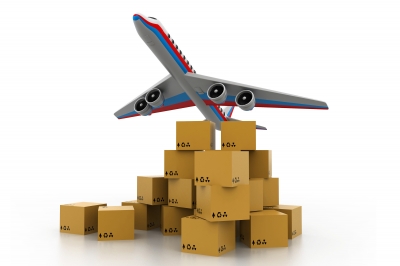 The International Air Transport Association (IATA) is optimistic the Montreal Convention of 1999 (MC99) which promotes use of electronic air waybills (e-AWB) will soon be approved by the Philippine Senate.
The International Air Transport Association (IATA) is optimistic the Montreal Convention of 1999 (MC99) which promotes use of electronic air waybills (e-AWB) will soon be approved by the Philippine Senate.
IATA country manager for the Philippines Roberto Lim said MC99 was cleared last month at the Senate committee level and is up for third reading in July.
“I’m happy to report that the sponsorship of the e-air waybill has been accomplished just last month and there should be votation by the plenary session in July,” said Lim during his presentation at the “Creating e-Awareness in the Philippines” forum organized by CHAMP Cargosystems Philippines on June 18.
Apart from introducing electronic air waybills, the Montreal Convention increases liability limits for airlines.
“I think the legislators, the senators in particular, do appreciate this is an important piece of legislation with those two purposes,” Lim said, noting that the latest developments have made IATA optimistic. He added IATA is also ready to help prepare the industry implement the law.
MC99 is the Convention for the Unification of Certain Rules for International Carriage by Air, signed in Montreal in Canada in 1999 and which took effect in 2001. It outlines the liability of an airline in the case of passenger death, injury, or delay, or baggage or cargo delay, damage, or loss. It also modernizes and unifies the different international treaty regimes covering airline liability that have developed haphazardly since 1929.
According to IATA, MC99 is, in short, “designed to be a single, universal treaty to govern airline liability around the world.”
IATA said the Philippines is one of the fast growing aviation markets in Asia that have yet to sign the convention, along with Thailand, Indonesia, and Vietnam.
Lim said once MC99 is ratified, the Philippines will be able to implement e-AWB that will bring about improved efficiency, quality, and security, as well as provide cost and environmental benefits.
An AWB, Lim said, is the “key contract between the shipper and the carrier.” There is on average 14 paper documents that need to be submitted by air cargo stakeholders, and the target is to remove some of these and put the rest in electronic form, he added.
Lim noted there are trade lanes under MC99 where e-AWBs are effective, but countries not under MC99 can still accept e-AWB. He added that 80% of worldwide air cargo volume already moves on routes compatible with MC99.
Of the total 2.031 million AWBs that move globally, 76% or 1.536 million move as e-AWB on MC99 trade lanes.
However, only 398,140 e-AWBS are recorded globally, representing a penetration rate of 25.9%.
In the Asia-Pacific region—excluding China, Hong Kong, Taiwan, Mongolia, and North Korea—104,773 e-AWBs were recorded, representing a penetration rate of 28.7%.
Lim admitted there’s a long way to go before the e-AWB system becomes more popular.
He added foreign airlines may be ready to apply e-AWB in the Philippines since they already use it in other countries; some freight forwarders are also ready internally but not on a “public basis.” That is why, Lim said, there should be support from all stakeholders once the convention becomes law.
Aside from IATA, other supporters of the MC99 ratification are the International Federation of Freight Forwarders Associations (FIATA), Global Air Cargo Advisory Group, International Air Cargo Association, and International Civil Aviation Organization.
Other IATA programs
Besides MC99, Lim said IATA has signed a memorandum of agreement (MOA) with the Office of Transportation Security (OTS) of the Department of Transportation and Communications to create a security regime for the country’s air cargo sector.
Lim said IATA has held regular meetings with OTS on creating a national air cargo security program which follows an IATA roadmap and complies with the country’s civil aviation security program.
Lim said that instead of creating a new procedure, OTS has agreed to follow IATA’s program, which is seen to help local players adhere to international safety standards and help facilitate international trade.
The initial draft detailing the standard operating procedures and security programs is ready, and the final draft is targeted for completion by the end of July. OTS will then audit stakeholders that can pilot the program by August, and determine hand-over process and audit trail by mid-September. Actual pilot is set for October, with pilot completion expected by May next year.
Another IATA project is Resolution 65, or the electronic Consignment Security Declaration (eCSD), which is a global air cargo supply chain standard that aims to protect consignments as they move through the supply chain.
Lim said the project, set to go live in October this year, also provides regulators an audit trail of how, when, and by whom cargo has been secured in the supply chain.
All IATA airline members should use the CSD or e-CSD when filing or transmitting/recording cargo security information on a separate document, and security status can still be placed on the MAWB.
e-CSD was adopted last March and could go into effect by October 1 if it passes necessary government approvals.
Another IATA project, the Cargo Agency Modernization Program (CAMP), is planned for roll-out in the Philippines by the third quarter of 2016.
CAMP aims to move from eight agency programs managed by IATA to one global air cargo program jointly managed by IATA and FIATA.
Lim said this program will simplify governance structure, clarify and validate the business model as a buyer/seller relationship (instead of an agency), and conduct settlements still through Cargo Accounts Settlement Systems.
Moreover, IATA plans to conduct a dangerous goods seminar in November to raise awareness on proper handling, labelling, and acceptance of dangerous goods.
With these developments, Leo Morada, chief executive officer of value-added service provider Cargo Data Exchange Center, suggested reactivating the Philippine E-Freight Working Group which stopped regular meetings two years ago. Lim responded that a meeting could be held a few months from now. – Roumina Pablo
Image courtesy of hywards at FreeDigitalPhotos.net





